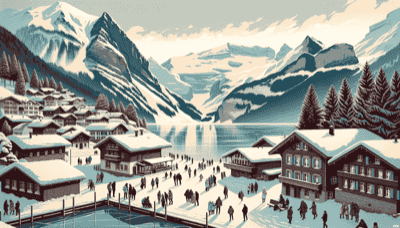We're here to help you keep count of the days to or since a date. Just click the button below and enter your chosen date to get started. Also choose the suggested days or search for a special day above #countingthedays

Date and Recognition: New Year's Day, known as "Neujahrstag," is celebrated on January 1st in Switzerland as it is in many other countries around the world. It marks the beginning of the new calendar year and is a public holiday across the nation.
History: The celebration of New Year's Day on January 1st aligns with the Gregorian calendar, which was adopted by the Swiss along with many Western nations. The day has ancient origins that can be traced back to Roman times when January was named after Janus, the god of beginnings and transitions.
Traditions: Swiss New Year's Day traditions vary between regions and include a mix of private and public events.
Family Gatherings: Many Swiss people start by celebrating on New Year's Eve, known as "Silvester," with fireworks, parties, and dinners. On New Year's Day itself, it is common for families to gather for a relaxed day after the festivities of the night before.
Meals: A traditional dish often enjoyed on Neujahrstag is "Neujahrsbretzel," a special type of pretzel made to bring good luck for the coming year. Moreover, some families might serve a meal that includes pork since it is believed to bring prosperity.
Public Events: Some regions have specific local customs. For instance, in Appenzell Inner Rhodes, there is a tradition called "Silvesterchlausen" where individuals dress up in elaborate costumes and masks to chase away evil spirits.
Relaxation: As it is a public holiday, most businesses are closed, giving people time to relax at home or enjoy outdoor activities like skiing or hiking if weather permits.
Activities: Swiss people engage in various activities depending on their personal preferences:
Overall, New Year's Day in Switzerland combines tradition with leisure as citizens welcome another year amidst the scenic beauty of their country.